 Donate Now
Donate Now
Overwhelming Challenges
Youth homelessness is a prevalent and growing problem that disproportionately affects certain populations and communities. The causes and experiences of youth homelessness are traumatic, and all youth experiencing homelessness are at a critical intervention point.
1 in 10 young adults aged 18 – 25 and 1 in 30 youth aged 13 – 17 experience some form of homelessness and related trauma over the course of a year.
Situation at Intake
Youth who seek services at Bridge come from a very wide variety of backgrounds and situations.
They often do not outwardly present as being in crisis.
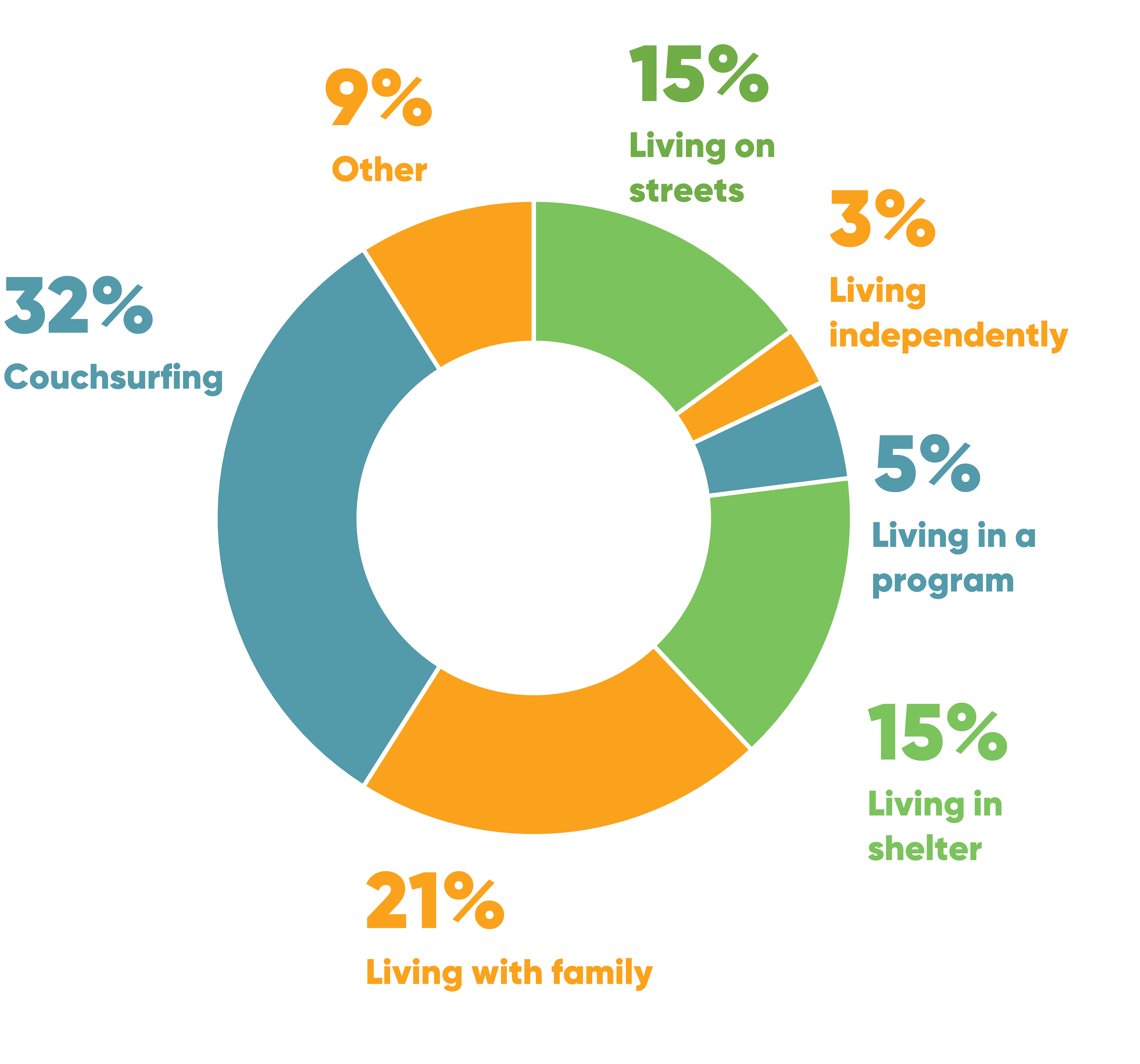
Homeless Youth Experiences at Intake
Youth who seek services at Bridge have often experienced a wide range of trauma.
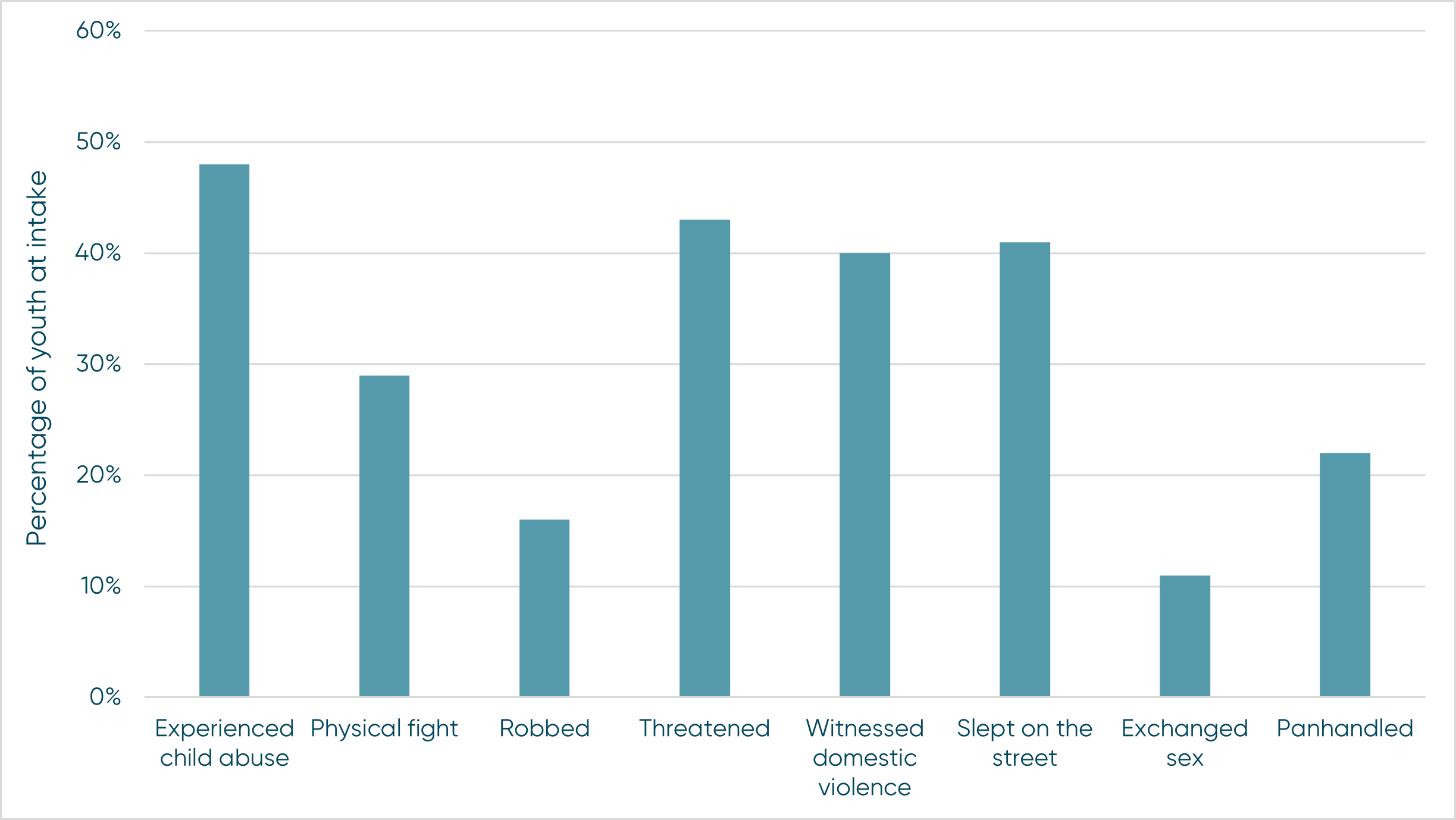
Racial & Ethnic Identity
Black and brown youth are disproportionately at risk for and affected by homelessness.

Sexual Identity
The LGBTQ+ community is disproportionately at risk for and affected by homelessness.
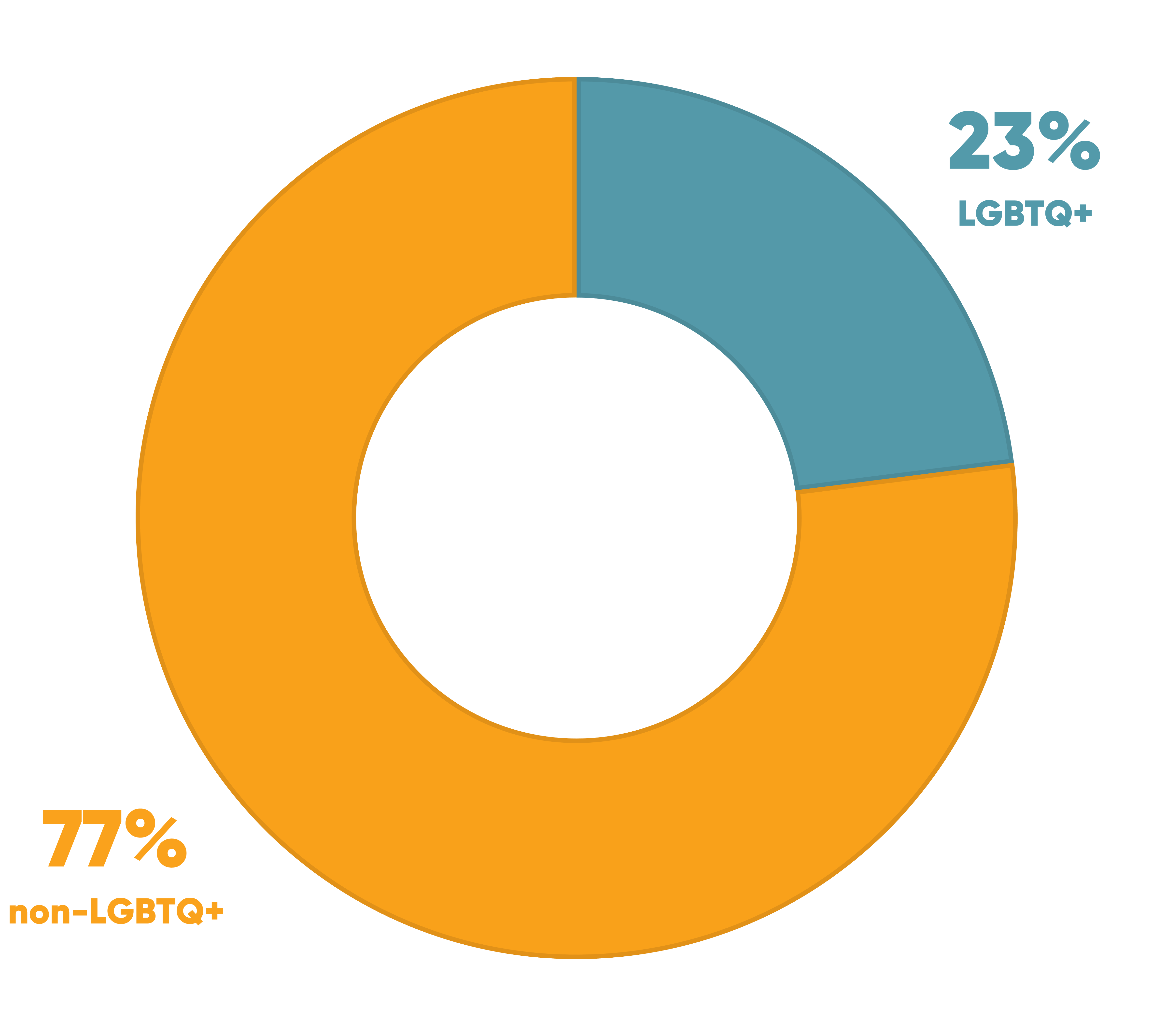
Expand
Comprehensive Solutions
Bridge has built a comprehensive set of programs and services designed to meet the individualized needs of each unique person. We are prepared to meet each youth wherever they are, physically, mentally, and emotionally, with Prevention and Intervention services, Skills for Self-Sufficiency programs, and Housing Access & Stability solutions.
The past traumas faced by youth experiencing homelessness are often overwhelming and there are no quick fixes or half-measures that will result in successful outcomes. Bridge is dedicated to partnering with youth on these long-term journeys, guiding youth The Whole Way from homelessness to hope.
Prevention
& Intervention

Street Outreach

Mobile Medical Van

Runaway Hotline
Skills for
Self-Sufficiency

Counseling & Support

Transitional Day & Welcome Center

Education & Career Development
Housing Access
& Support

Emergency Residence

Transitional Living Program

Single Parent House

Independent Housing
Prevention & Intervention
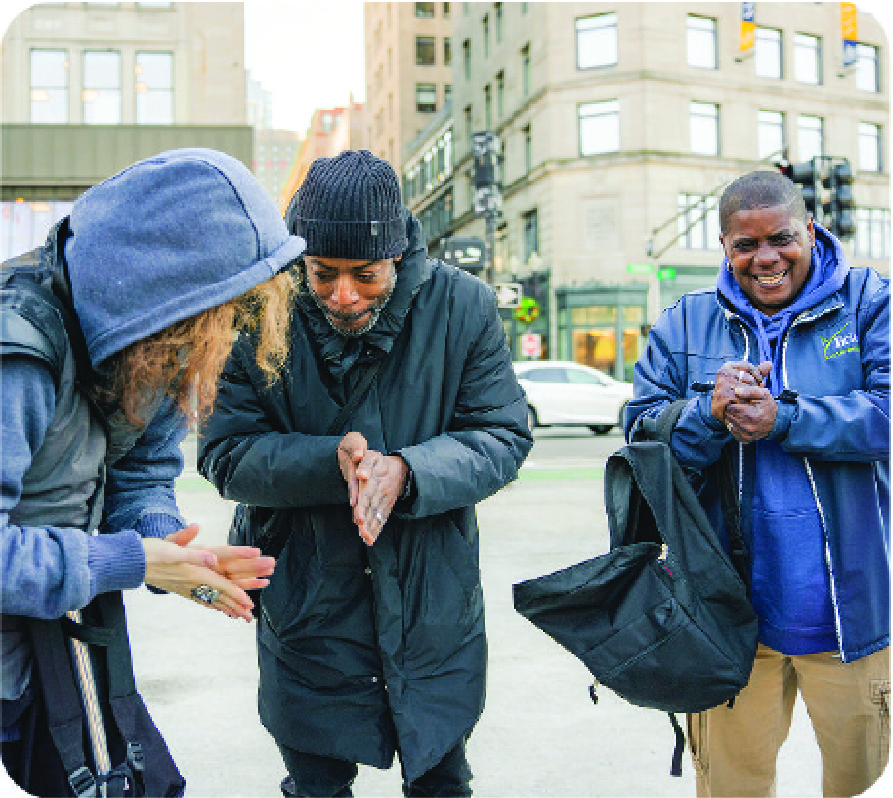
Bridge’s Prevention and Intervention services are geared towards reaching the largest number of Boston’s homeless, at-risk, and runaway youth as possible. We are committed to getting the word out about Bridge, providing safe access points for youth to connect with us, and preventing runaways and homelessness wherever possible. This is the first line of contact between youth and Bridge, so it is important for us to provide a welcoming, warm, and safe environment from the start.
Skills for Self-Sufficiency
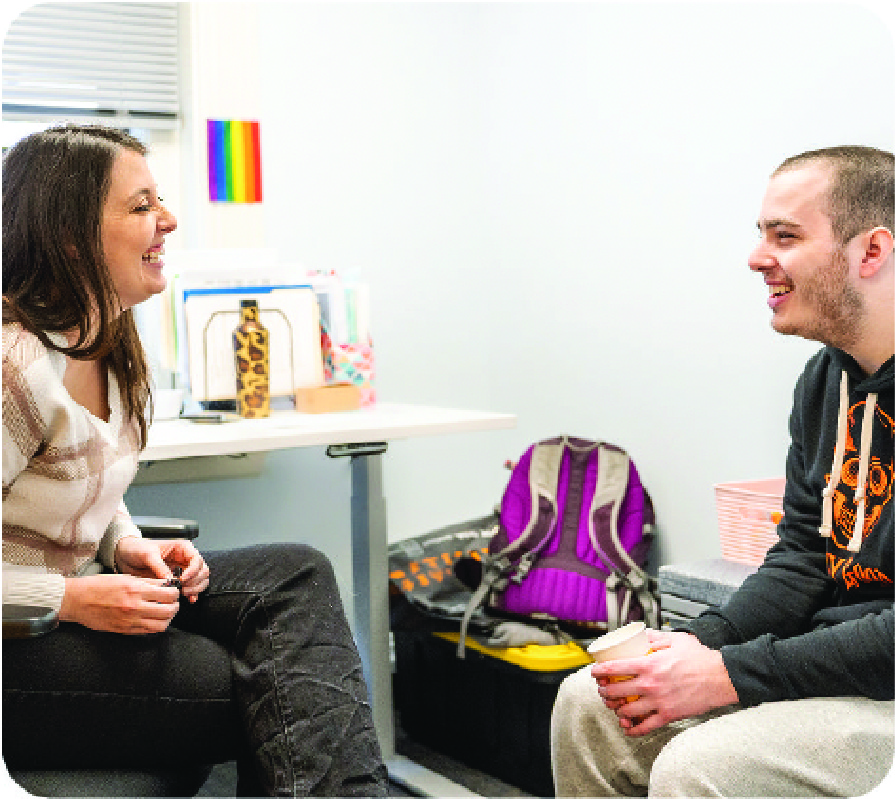
The next part of the Bridge journey is helping youth to develop skills for self-sufficiency. This includes helping each individual learn to manage their physical and mental wellbeing, to handle their finances, and to maintain consistency at school or at a job. These skills are foundational for their future success as independent, functioning adults. Many of these youth, who have been abandoned and neglected by the adults in their lives, are receiving this guidance for the first time.
Housing & Support
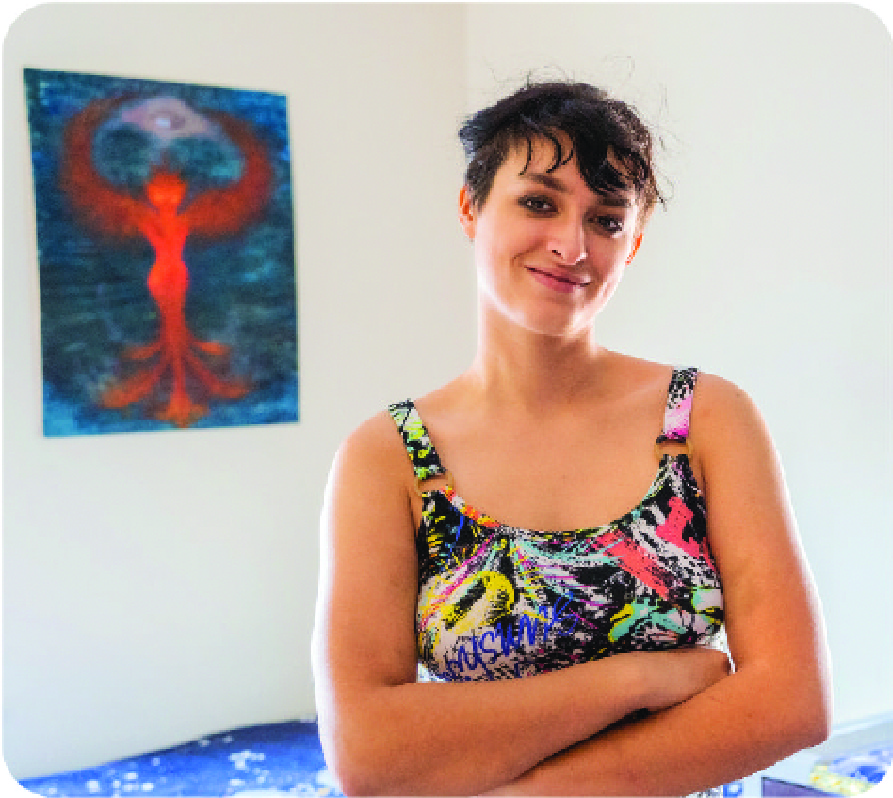
Housing itself is a crucial part of success for young adults facing homelessness. Bridge provides both supportive housing and independent housing options, depending on each individual youth’s level of independence and needs. Bridge also helps youth in new housing, setting them up with community support and providing them with ongoing assistance as they make the transition to stable housing.
Expand
Successful Outcomes
The story of every youth at Bridge is unique, but together they make up a much greater story. These statistics prove the success of the Bridge model in reaching as many youth as possible, providing youth with the confidence and skills to be self-sufficient, and supporting their housing needs until each young adult can truly be out on their own, living and thriving independently. The Bridge model works because it truly does guide youth The Whole Way from homelessness to hope.
86%
of youth under 18 were reunited with family or received preventative services to keep them from running away.
68%
of youth who graduated the Bridge program were able to manage their own physical and mental health needs.
84%
of youth in Bridges Transitional Housing Program moved into stable housing.



844
youth met with our Street Outreach team across double the number of strategic locations as last year.
622
youth new to Bridge completed the full intake process, up 41%.
24
new Safe Place sites added to our network, increasing safe access points for runaways under age 18 by 133%.
86%
of youth under 18 were reunited with family or received preventative services to keep them from running away.
2,146
behavioral health therapy sessions provided to youth who traditionally do not have access to this service.
68%
of youth who transitioned from Bridge were assessed as being able to manage both their physical and mental health needs.
66%
of youth who transitioned from Bridge were assessed as being able to manage a budget and perform household management activities.
88%
of youth housed in independent living were employed.
60
youth supported in Bridge’s transitional living programs
84%
of youth in Bridge’s transitional living programs moved into stable housing.
218
youth supported in Bridge’s independent housing programs.
70%
of youth who transitioned to independent living went to market-rent housing.